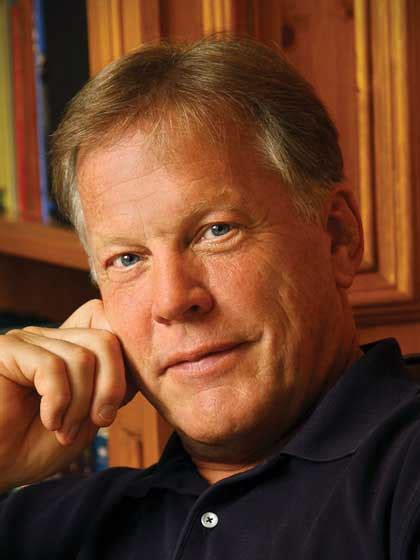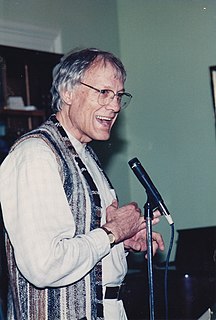A Quote by St. Catherine of Siena
We've been deceived by the thought that we would be more pleasing to God in our own way than in the way God has given us.
Related Quotes
Time spent in prayer will yield more than that given to work. Prayer alone gives work its worth and its success. Prayer opens the way for God Himself to do His work in us and through us. Let our chief work as God's messengers be intercession; in it we secure the presence and power of God to go with us.
If we cannot find our way to a time when most of us are willing to admit that, at the very least, we are not sure whether or not God wrote some of our books, then we need only count the days to Armageddon-because God has given us far many more reasons to kill one another than to turn the other cheek.
Our hearts are continuously rebellious. Every time we sin in thought, word, or deed, we're essentially saying in that moment that, "I don't need you God. I don't want you God. I like my way better than your way." If this goes on day after day after day, year after year, month after month, it would understandable for God to say, "I've given you ten trillion tries. You're finished." But it's not. So in that sense, His grace is always surprising, never ceases to be amazing and His mercy is remarkably outrageous.
God knows we have our own demons to be cast out, our own uncleanness to be cleansed. Neurotic anxiety happens to be my own particular demon, a floating sense of doom that has ruined many of what could have been, should have been, the happiest days of my life, and more than a few times in my life I have been raised from such ruins, which is another way of saying that more than a few times in my life I have been raised from death - death of the spirit anyway, death of the heart - by the healing power that Jesus calls us both to heal with and to be healed by.
Our evangelical culture tends to take the awesome reality of a transcendent god who is worthy to be feared and downsize Him so He could fit into our "buddy system." The way we talk about Him, the way we pray, and, more strikingly, the way we live shows that we have somehow lost our sense of being appropriately awestruck in the presence of a holy and all-powerful God. It's been a long time since we've heard a good sermon on the "fear of God." If God were to show up visibly, many of us think we'd run up to Him and high-five Him for the good things He has done.
There are two gods. The god our teachers teach us about, and the God who teaches us. The god about whom people usually talk, and the God who talks to us. The god we learn to fear, and the God who speaks to us of mercy. The god who is somewhere up on high, and the God who is here in our daily lives. The god who demands punishment, and the God who forgives us our trespasses. The god who threatens us with the torments of Hell, and the God who shows us the true path.
There are two gods. A god who casts us off because of our sins, and a God who calls to us with His love.
God build’s God’s kingdom. But God ordered this world in such a way that His own work within that world takes place through the human beings that reflect His image. That is central to the notion of being made in God’s image. He has enlisted us to act as His stewards in the project of creation. So the objection about us trying to build God’s kingdom by our own efforts, though it seems humble and pious, can actually be a way of hiding from responsibility, of keeping one’s head well down when the boss is looking for volunteers.
God is not concerned about our plans; He doesn’t ask, “Do you want to go through this loss of a loved one, this difficulty, or this defeat?” No, He allows these things for His own purpose. The things we are going through are either making us sweeter, better, and nobler men and women, or they are making us more critical and fault-finding, and more insistent on our own way. The things that happen either make us evil, or they make us more saintly, depending entirely on our relationship with God and its level of intimacy.
Let me tell you something: for hundreds of thousands of years, this kind of discussion would have been impossible to have, or those like us would have been having it at the risk of our lives. Religion now comes to us in this smiley-face, ingratiating way — because it’s had to give so much more ground and because we know so much more. But you’ve got no right to forget the way it behaved when it was strong, and when it really did believe that it had God on its side.
The answer to our cry which God gave in Jesus infinitely transcends our expectations, achieving a solidarity which cannot be human alone, but divine. Only the God who is love, and the love which is God, could choose to save us in this way, which is certainly the lengthiest way, yet the way which respects the truth about him and about us: the way of reconciliation, dialogue and cooperation.
The gift our enemy may be able to bring us: to see aspects of ourselves that we cannot discover any other way than through our enemies. Our friends seldom tell us these things; they are our friends precisely because they are able to overlook or ignore this part of us. The enemy is thus not merely a hurdle to be leaped on the way to God. The enemy can be the way to God. We cannot come to terms with our shadow except through our enemies.









































